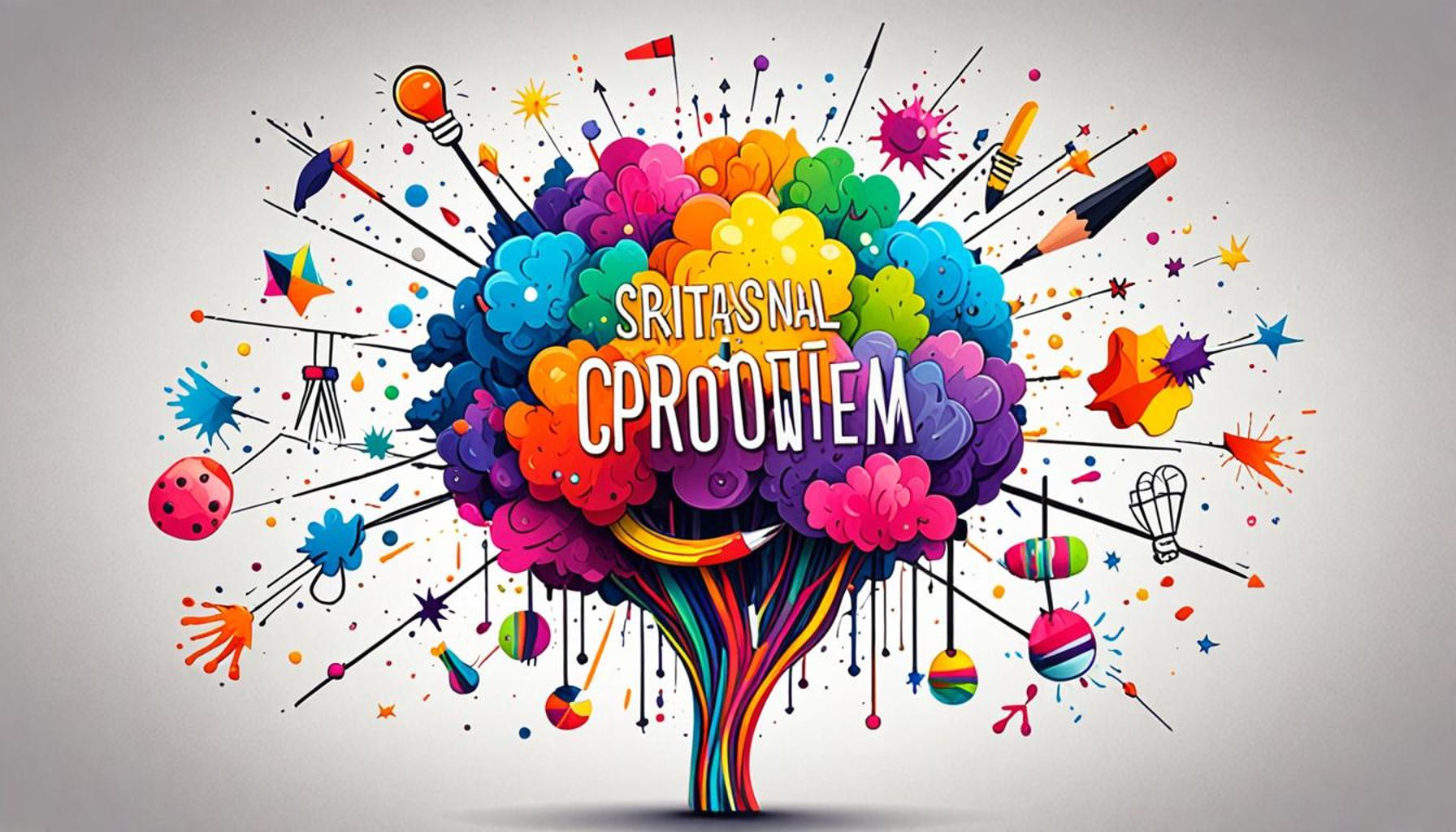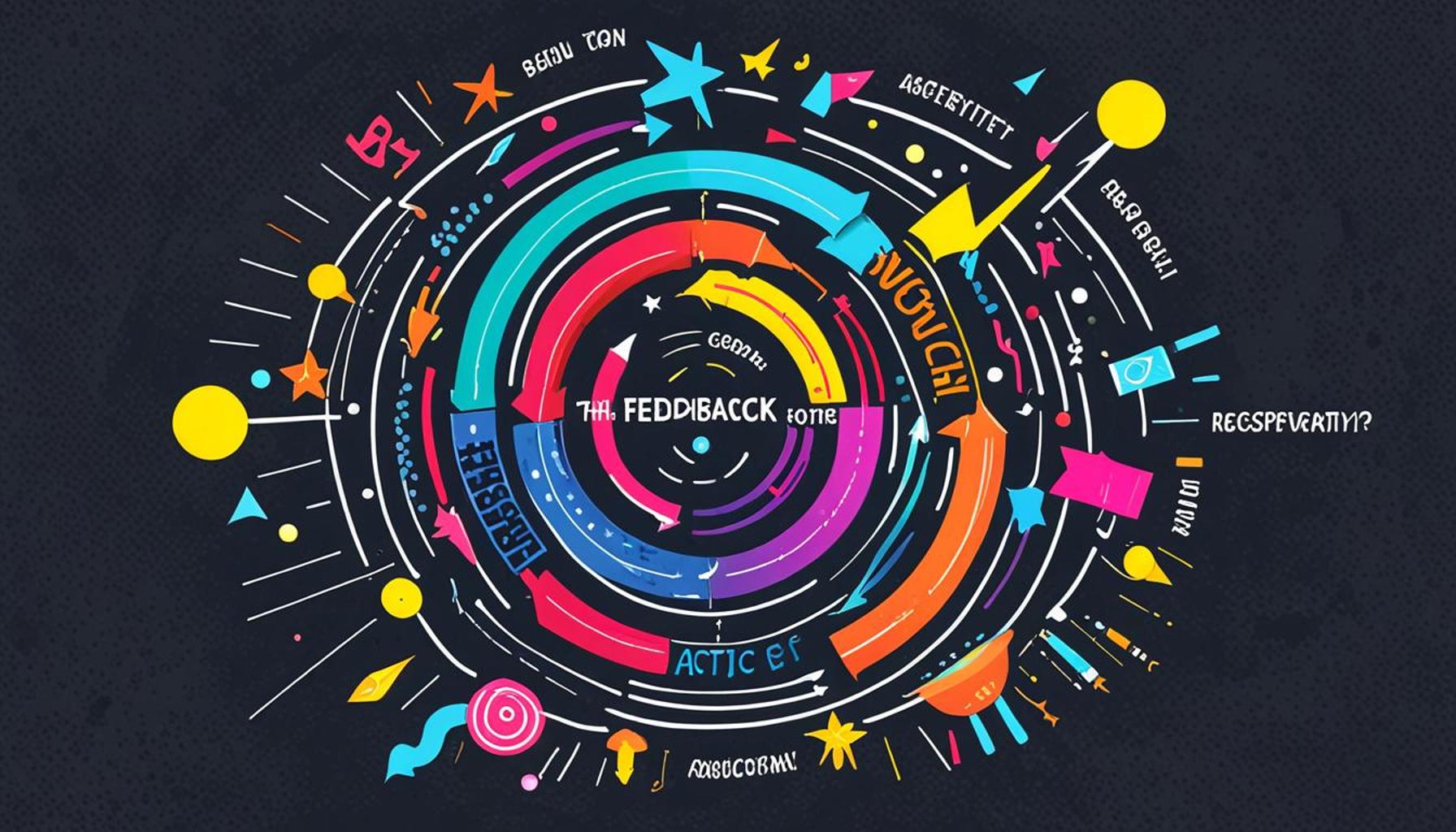Feedback as a Tool for Self-Knowledge: Uncovering Hidden Potentials

The Power of Embracing Feedback for Personal Development
In our quest for self-improvement, feedback serves as a crucial compass. It not only highlights our strengths but also uncovers the nuances of our weaknesses, encouraging growth in ways we may not initially perceive. For many Nigerians navigating the complexities of personal and professional landscapes, understanding and embracing feedback is vital for several reasons.
The Unbounded Advantages of Feedback
The role of feedback in personal growth extends beyond mere evaluations; it can significantly influence our direction in life. Here are some critical benefits it affords:
- Self-Awareness: In a diverse society, recognizing our individual traits is essential. Feedback from colleagues, family, and friends can shed light on how others perceive us, helping us discern our unique capabilities amidst the rich cultural tapestry of Nigeria.
- Skill Enhancement: Constructive criticism drills down to the specifics of our actions and choices. It helps individuals like young entrepreneurs in Lagos refine their business models or students in Enugu improve their academic performances by honing in on areas that require development.
- Relationship Building: Open communication fostered by feedback can strengthen community ties. In Nigeria, where communal living and relationships are valued, sharing thoughts and sentiments can lay the groundwork for deeper connections and support networks.
Yet, the journey toward self-discovery through feedback demands both courage and receptiveness. It is common for many to shy away from criticism due to fear of judgment. Embracing constructive feedback, however, can be a transformative endeavor. It compels us to reflect on pertinent questions such as:
- What skills are underutilized? Perhaps an aspiring musician in Jos has not realized their ability to blend traditional sounds with contemporary music.
- Which attributes do others admire? Understanding that colleagues appreciate your reliability could prompt you to become a go-to person in the workplace.
- How can we leverage our strengths for future endeavors? Acknowledging one’s public speaking skills may lead to opportunities for leadership roles within community organizations.
By actively seeking out and welcoming feedback, individuals can uncover hidden potentials crucial for navigating the multifaceted realities of life and work in Nigeria. The key is to shift the perception of feedback from being a source of discomfort to a transformative tool for growth. This perspective not only cultivates self-knowledge but also creates a fertile ground for new opportunities and success. As you embark on your journey, remember that each piece of feedback represents a stepping stone towards your ultimate potential.
LEARN MORE: This related article may interest you

Navigating Feedback: The Key to Understanding Ourselves
In Nigeria’s vibrant and diverse environment, the quest for self-knowledge can be a challenging journey. As we strive to realize our potential, it is imperative to embrace the transformative power of feedback. Feedback provides valuable insights, often revealing aspects of ourselves that we might overlook. This understanding can initiate a truly enlightening journey towards mastery, empowerment, and success.
Understanding the Dimensions of Feedback
Feedback is multifaceted. It encompasses both positive affirmations and constructive critiques, and each dimension plays a vital role in shaping our self-awareness. Recognizing the dual nature of feedback can help us appreciate its full spectrum:
- Positive Feedback: This type of input can boost confidence and reinforce desired behavior. For instance, when a young graduate in Abuja receives commendation for their innovative contributions during a group project, it can inspire them to continue exercising their creativity in future endeavors.
- Constructive Criticism: While it may initially sting, constructive feedback is a tool for improvement. An example might be a seasoned professional in Port Harcourt who learns that their communication style sometimes alienates colleagues. Such insights enable them to adapt and foster a more inclusive work atmosphere.
- Peer Feedback: Engaging with peers allows for a broader perspective on self-performance. For instance, within tight-knit communities, a farmer in the rural areas who participates in local cooperative groups can gain invaluable insights from fellow farmers, thus improving not only individual practices but also collective productivity.
Such insights require a readiness to listen and a willingness to act. However, navigating feedback can be daunting for many. In a culture that often associates criticism with judgment, some may find themselves hesitant to confront feedback head-on. To effectively harness feedback for self-knowledge, it is essential to approach it with an open heart and mind.
The Challenge of Embracing Feedback
In Nigeria, where societal values often emphasize communal achievement over individual performance, the act of receiving feedback can be complex. Individuals might refrain from seeking critique out of fear of disappointing their peers or family. Yet, asking for constructive input can yield clarity and wisdom. It encourages introspection and growth. Some thought-provoking questions could guide this process:
- What blind spots might I have? Consider how a young artist in Lagos may inadvertently ignore essential aspects of their craft, sacrificing potential growth.
- How am I valued in my circle? Understanding the attributes others admire can lead to a reawakening of dormant talents, whether in leadership, creativity, or communication.
- What potential opportunities can arise from feedback? Acknowledging and acting upon guidance may unlock doors one never considered, like stepping into community leadership roles or entrepreneurial ventures.
By seeing feedback as a pathway to self-discovery, rather than a source of discomfort, individuals can unveil hidden potentials. This remarkable shift in perspective nurtures a culture of growth that extends beyond self and contributes to the collective advancement of our communities in Nigeria. Therefore, let us embrace feedback as a critical companion in our pursuit of self-knowledge and fulfillment.
| Advantages | Description |
|---|---|
| Increased Self-Awareness | Gaining insights about personal strengths and weaknesses through constructive feedback. |
| Improved Performance | Utilizing feedback to refine skills and enhance overall efficiency in personal and professional endeavors. |
| Encouragement of Growth Mindset | Fostering resilience and adaptability by viewing challenges as opportunities for development. |
| Enhanced Communication Skills | Receiving and interpreting feedback helps in understanding diverse perspectives, improving interpersonal skills. |
In the context of Feedback as a Tool for Self-Knowledge, these advantages underline the transformative power of seeking and accepting feedback. When individuals engage with feedback proactively, they lay the groundwork for personal development and essential skill enhancement. Such interactions can expose hidden potentials, which often remain undiscovered without external insight.Incorporating a feedback loop into one’s life not only cultivates self-awareness but also enhances performance. For instance, professionals who actively seek critiques of their work often demonstrate a measurable increase in productivity and creativity. This process encourages a growth mindset, allowing individuals to perceive failures and setbacks as stepping stones rather than barriers.Moreover, feedback can significantly influence communication skills. By learning from others and considering their viewpoints, individuals become more adept at navigating complex interpersonal dynamics. This holistic approach ultimately leads to a richer understanding of oneself and the environment. To delve deeper into the multifaceted world of feedback, consider exploring its varied applications across different contexts.
ADDITIONAL INSIGHTS: Expand your understanding here
The Ripple Effect of Feedback on Personal Growth
As we delve deeper into the significance of feedback, it becomes evident that its impact extends far beyond immediate reactions and responses. Feedback can act as a catalyst, not only for individual self-discovery but also for fostering a culture of growth and collaboration within communities across Nigeria. By embracing the giving and receiving of feedback, we cultivate an environment that encourages ongoing development and innovation.
Building Resilience through Constructive Engagement
One of the profound benefits of engaging with feedback is the resilience it fosters. For a youth entrepreneur in Ogun State, for example, regularly seeking constructive criticism about business strategies might initially evoke feelings of vulnerability. However, over time, this practice can lead to enhanced emotional strength and adaptability. Each constructive piece of feedback presents a chance to reassess strategies and pivot as necessary, thereby reducing the fear of failure. This iterative process of improvement enables individuals to view obstacles as opportunities for growth.
To illustrate, consider a group of artisans in Aba who specialize in fashion and tailoring. By sharing works in progress with one another, they not only receive feedback on design, but they also encourage creative exchanges that provoke ideas for future projects. The collective feedback process leads to greater innovation and ultimately lifts the entire group’s profile within the competitive market.
Enhancing Collaborative Learning and Community Development
No longer is feedback merely a personal endeavor; it evolves into a communal tool that binds individuals together. Through mutual feedback loops, different sectors—be it agriculture, education, or tech startups—can integrate insights for broader enhancement. For instance, in Kano, where traditional farming meets modern techniques, farmer cooperatives can thrive through feedback from experienced agronomists who analyze yield reports and suggest improvements. This collaborative approach ensures that knowledge is shared, promoting both personal and collective advancement.
Moreover, educational institutions across Nigeria are starting to embrace feedback as a foundational element of the learning process. Teachers offer feedback not just as a grading mechanism but as a means for students to explore their strengths and weaknesses. By framing feedback in constructive ways, educators can create an environment where students are more willing to share their own experiences and reflections, thus enhancing a culture of open dialogue. For instance, a teacher in Jos who implements peer review sessions for assignments is not only fostering academic growth among students but is also helping them to develop their critical thinking and evaluation skills.
Developing a Lifelong Feedback-Driven Mindset
For feedback to reach its full potential as a tool for self-knowledge, it must become ingrained in everyday practices. Establishing that lifelong learning mindset where feedback is actively pursued can lead to continued personal and professional growth. By adopting this approach, an aspiring tech developer in Lagos might regularly seek mentorship from experienced professionals, thereby gaining insight not just into technical skills but also into industry nuances and career navigation strategies.
Furthermore, this feedback-inclusive mindset prepares individuals to not only receive criticism with grace but to also become adept at offering constructive suggestions to others. Such reciprocal exchanges can create a strong network of learners, innovators, and leaders ready to uplift one another. As this culture spreads, the implications for increased productivity and creativity are sizable, revealing layers of potential that many may have previously overlooked.
SEE ALSO: Click here to read another article
Conclusion: Unlocking the Power of Feedback
In a world increasingly driven by innovation and collaboration, the importance of feedback as a tool for self-knowledge remains paramount. By recognizing feedback as a catalyst for growth, individuals and communities in Nigeria can unveil their hidden potentials and embrace a pathway of continuous improvement. Whether it is a youth entrepreneur in Ogun State refining their business strategy or a group of artisans in Aba fostering creative exchanges, feedback is the thread that weaves resilience and adaptability into the fabric of personal and collective development.
Furthermore, as we cultivate a feedback-rich culture in our educational institutions and professional networks, we empower the next generation to pursue lifelong learning. This environment encourages the sharing of experiences, insights, and wisdom, providing robust support systems for growth. When feedback becomes a routine practice—actively sought and graciously accepted—it transforms not only the individuals who utilize it but also the communities that embrace it.
Thus, the challenge lies in committing to a feedback-driven mindset that values constructive engagement and mutual upliftment. By doing so, we create networks of learners and innovators who can collectively navigate challenges, inspire one another, and ultimately revolutionize industries across Nigeria. In exploring the depths of feedback, we are not just uncovering our own potentials; we are igniting a movement that has the power to change lives and reshape communities.


